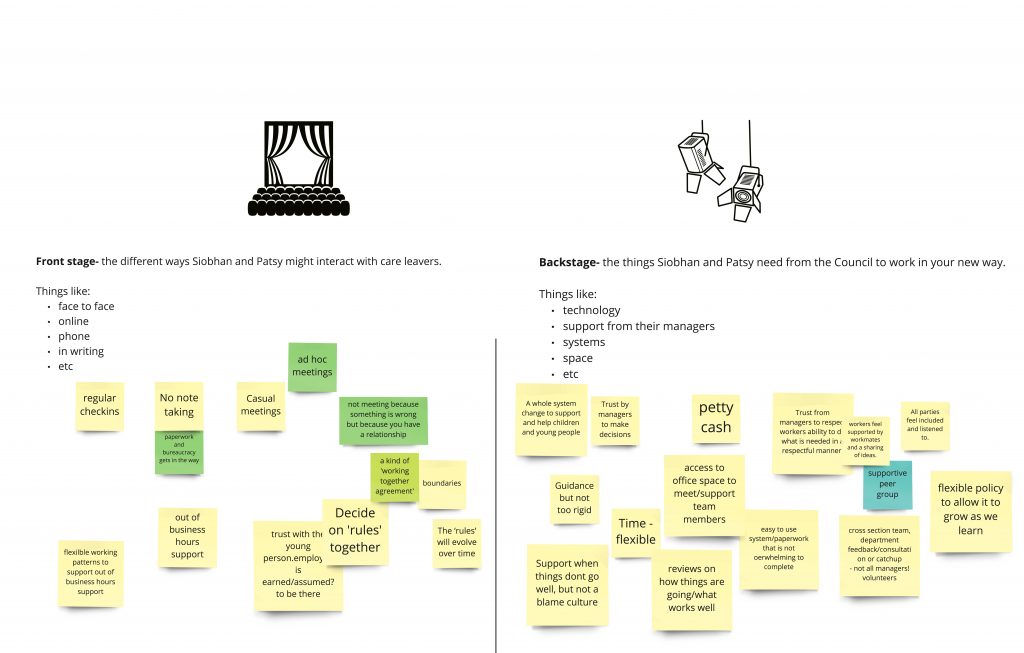Storytelling
What stories can we tell about a future when Siobhan and Patsy, Corporate Parents in Falkirk Council, are given the freedom and trust to work in flexible and agile ways to support relationships? We started thinking about this by imagining what they would need from the Council (backstage) and how those things might result in new and different ways they interact with care leavers (front stage).

From there we worked together to develop a basic flash fiction story. Flash fiction is somewhere between a poem and a short story. It can be anywhere from 50-1000 words and has three basic elements: emotion, plot and resonance (something that really sticks with the reader.) Even though flash fiction is short, it really packs a punch. To start this process, we imagined moments that Siobhan and Patsy might experience that are particularly powerful or poignant. Not a huge big event, just a moment. For example, instead of thinking about someone buying a new house, we thought about the moment they have new house keys in their hand.

After a lot of discussion and collective free writing, we had the bones of a story about a future front stage and backstage for Patsy, Siobhan and Robert, a care leaver they could support into getting a place at college. What emerged in our free writing discussions were details like Siobhan being able to go along with Robert to all the college open days he wanted to; helping Robert pick out and pay for stationery; spending out of hours time helping Robert sort out decorating his new student accommodation; spending time with Robert during a work placement programme. We also started to develop the story of the relationship between Patsy and Siobhan, with Patsy guiding Siobhan through all the things she now has freedom to do with and for Robert under flexible and agile working, for example, access to petty cash, a more open flexi-time system, and the freedom for them to spend time together to share their approaches and experiences as Corporate Parents.
